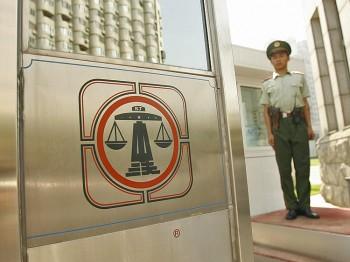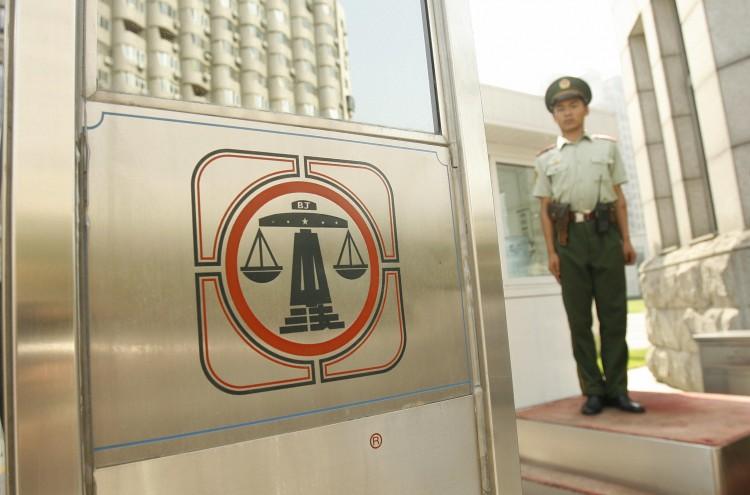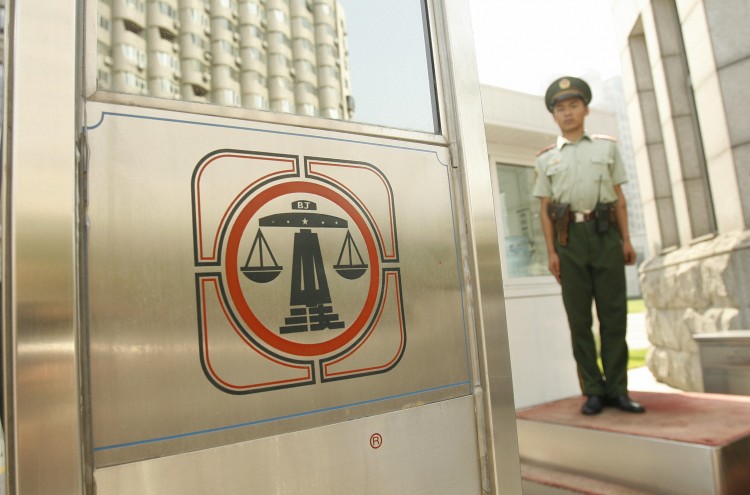Five Unspoken Rules of China’s Legal System
Chinese lawyers share how things really work under the Communist Party.

A Chinese paramilitary policeman stands guard outside Beijing's No. 2 Intermediate Court on August 31, 2006. Peter Parks/AFP via Getty Images
|Updated:





